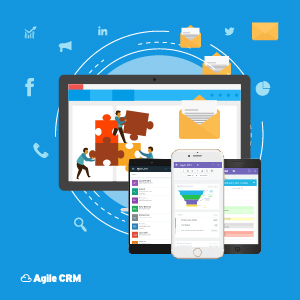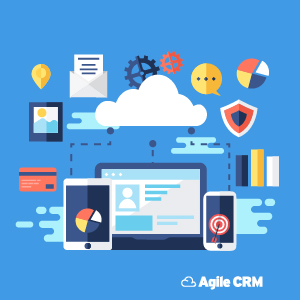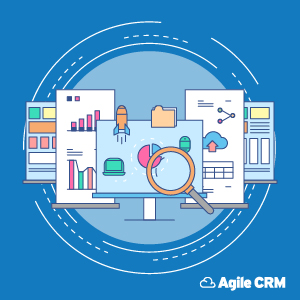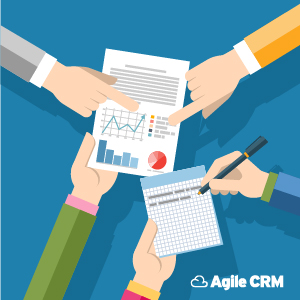Your seven-point checklist for evaluating CRM software reliability
Customer relationship management (CRM) software has become a must-have for any organization participating in sales and marketing. For many years after CRM became a mainstream concept, proprietary installed solutions were the only option and were mainly used by large enterprises who could afford them, and which had a use for their extended feature set.
But the evolution of cloud-based solutions opened up the world of CRM to organizations of all sizes. Even if your sales team consists of those two guys in the back office, you can gain all the benefits of a CRM solution and start playing in the big leagues.
Here are some interesting figures about the growth potential of CRM:
- Gartner forecasts that the CRM software market will be worth over $40 billion in 2018.
- Grandview Research projects the market will double to $80 billion by 2025.
- According to BuyerZone, 91 percent of companies with more than 11 employees now use CRM software.
The question is, with so many CRM solutions available, how do you select the right one, and how can you be sure that your solution is reliable and effective.
Luckily, we’ve got you covered with this handy checklist for evaluating a potential CRM solution.
-
Integrations

How well does your CRM software integrate with your major sources of customer data – mobile, social and email?
A report from Innoppl Technologies noted that 65 percent of sales reps who adopted mobile CRM software achieved their sales quotas compared to the only 22 percent of reps stuck on non-mobile CRM solutions who reached theirs.
Mobile integration is an absolute must in 2018, or you’re missing out on important customer data. Not to mention your own ability to access your CRM from your phone or tablet. A good CRM will also allow you to communicate via SMS with your contacts, eliminating downtime when they might be away from their email.
Social CRM integration is just as key, considering it is a treasure trove of customer insight that can help identify, nurture and convert leads. Your CRM should be able to access contact activity on social media sites and enable you to post and engage with customers on multiple sites.
Finally, email integration is an absolute essential. You will need to be able to track every conversation your sales and marketing teams have with leads and contacts, and sync calendars to send reminders and schedule appointments.
All of these integrations can be accomplished with simple plugins, enabling seamless communication…if you’re using the right CRM software, that is.
-
Accessibility

In 2008, only 12 percent of businesses used cloud-based CRM software solutions, a figure that increased to 87 percent in 2017. What’s behind that massive jump? Smartphones and tablets, and the increasing amount of business that is done via mobile devices.
As noted above, cloud-based solutions offer far more accessibility than installed solutions and are far more cost-effective.
-
Data Quality

Ensuring data quality is a make or break factor in CRM software reliability. The data fuels the engine and determines the effectiveness of your communications with customers. It must be up to date, derived from trustworthy sources, and non-duplicated.
Are your form fields correctly translating to the information that you need? Are they asking the right questions to give you the insight you need to properly communicate with your leads and customers? Does the system respond quickly to customer updates?
Junk data or incorrect fields will lead to outdated insights which wastes everyone’s time and effort. Make sure your CRM software is humming like the fine-tuned machine you need to power your sales and marketing.
-
Reporting

Powerful reporting will ensure that you are not only acting upon accurate, trustworthy, and timely data; it will also ensure that you can accurately measure your CRM software’s efficacy.
You should be able to seamlessly export data in your preferred format from your CRM, including proper filtering and graphing. When you need to hone in on a particular buyer persona or determine potential issues with a specific lead, you should be able to easily create a report that offers you the insight you need.
Moreover, you should be able to gain extensive insight into your sales pipeline, the state of deals in the pipeline, and a vast array of different metrics that matter to you and allow you to make data-driven decisions.
-
Security

When you’re working with rich customer data profiles like those offered by a powerful CRM solution, security is of the utmost importance. Information like contact info, payments, and purchase history must remain confidential, and only accessible by authorized users.
Cloud security has vastly improved over the years, so you can ensure that information is safe even if it’s not housed in an onsite repository. Your CRM software should have proper security measures in place to prevent breaches of customer information. This helps to ensure that your lead tracking capabilities remain effective.
When shopping around for a CRM, check their data security practices. Ask about data security certifications. Your customers’ data should be treated like a delicate flower, handled with white gloves.
-
Service and Support
Finally, any CRM you consider is only as good as the service that supports it. Your CRM vendor should provide you with real-time support staff to help with the onboarding process, including data migration, staff training, regular check-ins, and ongoing support. It should be obvious that your vendor has a vested interest in your success using their product.
For example, check out how Agile CRM provides best-in-class service to its clients from implementation to continuous support.
The wrap up
The CRM software market is continuing to boom as organizations of all structures and sizes get wise to the fact that they can access enterprise-level CRM solutions at a reasonable cost. Chances are, your company is already using one. But is it the right one for your needs? Let us know in the comments section below!
Use this handy checklist and additional recommendations from AgileCRM to test your CRM software, and make the right choice for your business.

No Comments